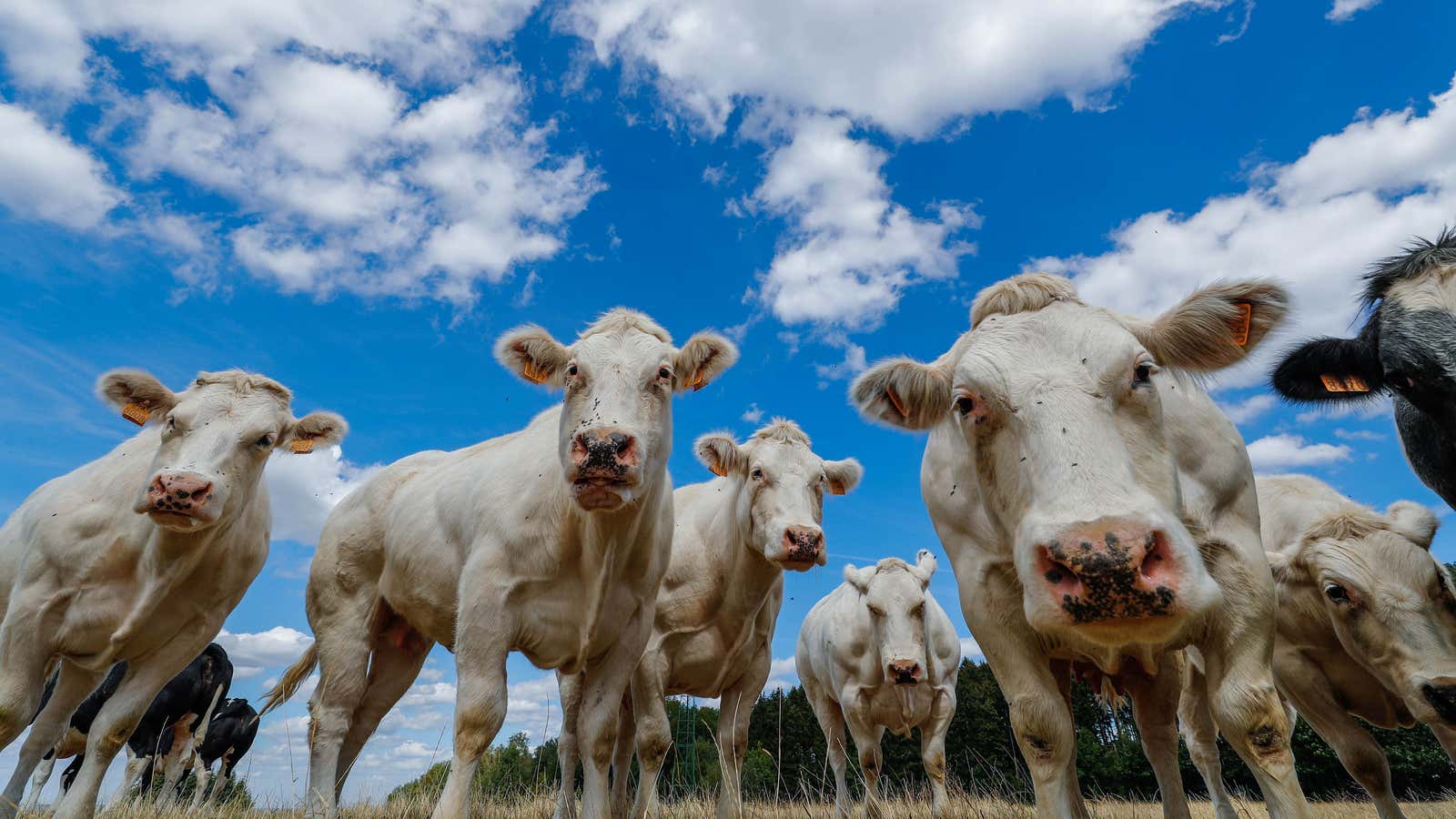A Dutch animal welfare organization is speaking out against (link in Dutch) long-running European Union subsidy programs that support the animal agriculture industry. The Wakker Dier Foundation claims that propping up the beef, pork, and chicken businesses ostensibly puts the EU in a position of contributing to the global climate crisis.
“Where the EU tries to stimulate meat consumption, the Netherlands is trying to discourage meat consumption through policy,” the group says in a statement. “These are perverse subsidies.”
Each year, the EU contributes €200 million ($216.7 million) in subsidies to go toward the “promotion of agricultural products,” according to the Guardian. About €60 million ($65 million) has been spent in the past three years on close to two dozen marketing campaigns that promote eating meat. In once case, funding went toward a “road show” in which a big pink bus was outfitted to look like a pig with marketing language on its sides.
This type of subsidy policy isn’t isolated to Europe. The US Department of Agriculture oversees a much bigger pot of money that goes toward promoting all sorts of agricultural goods, including those in the animal agriculture sector. That money goes to groups called checkoffs. In 2016, the government contributed at least $562 million toward dairy, beef, pork, and lamb checkoffs.
The funding has gone not just toward public marketing campaigns, but also into funding research. Earlier this year, the chief author of a study had to issue a correction for research that appeared in the Annals of Internal Medicine. The authors hadn’t disclosed their involvement with a group called NutriRECS, which is funded in part by the Texas Beef Checkoff program, according to the Washington Post.
It raises an important question: Should governments be helping to prop up businesses that contribute to climate change?
Climate scientists generally agree that animal agriculture contributes to around 14% of the globe’s total greenhouse gas emissions. For governments looking to achieve reductions, such subsidy programs seem to run counter to climate goals.
Still, at least in the US, concerns about public funding of animal agriculture have not gained traction. But Europe may just be on the cusp of more actively considering how that money is spent, according to a comment made by an EU Commission spokesperson to the media.
“In an effort to constantly evaluate and adjust its existing policy, the commission will soon launch a public consultation on the EU promotion policy for agricultural products,” the spokesperson said.
